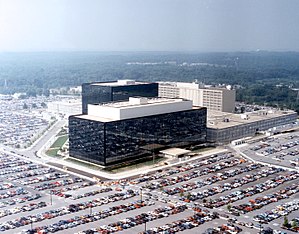I came across this twist while researching invasion-of-privacy by the government.
Communications Companies Milk the Spooks
It’s fairly widely known that the government routinely asks for, and gets, telecommunications information on individuals from communications companies like Internet and telephone service providers. Sometimes these requests are legal (with an accompanying court order), sometimes not. They are almost always complied with. Or, were.
There are two trends in this landscape of communications providers ratting out our activities to the government:
First, communications companies have discovered the are huge profits to be made snooping on citizens for the government. For example, Comcast documents show that after an initial charge exceeding a thousand dollars, the cost per month to snoop on one individual is more than seven hundred dollars.
Second, perhaps to mitigate the increasing costs cited above, the need for law enforcement or government snoops to ask for this information is diminishing as the amount of information amassed by the Total Information Awareness “non-program” increases. The only stumbling point there is gaining access to the NSA‘s mother lode.
Spooks Milk US so They Don’t Have to Go Outside
Meantime, despite the recession, and perhaps to stem the needs to purchase information and instead just keep recording everything and store it forever, the NSA continues to expand it’s capacious data trove:
From: US spooks to build 60 megawatt data center by Timothy Prickett Morgan
According to declassified documents made available by the comptroller’s office for the Department of Defense, the US government’s fiscal 2012 budget includes $860.6m to build a high performance computing center at the NSA’s Fort Meade, Maryland, headquarters facility. That is the cost for the facility alone, not the cost of the servers, storage, and networking gear that will inhabit the data center.
From: NSA to Modernize With Cloud and Crypto Centers by Darlene Storm, Computerworld
NSA’s chief information officer (CIO) Lonny Anderson talked with Federal News Radio’s Jason Miller about the NSA’s mission, the three new state-of-the-art NSA cryptological centers in Hawaii, Georgia and Texas, as well as how efficiencies in IT with the cloud will help modernize the secretive intelligence agency.
NSA’s massive 65 megawatt data center is on 240-acres at the National Guard facility in Camp Williams, Utah. The self sustaining complex will have 1 million square feet of enclosed space with 100,000 square feet of working computer space. It will have its own “water and waste-water treatment plants, power, gas supply, battery backup, visitor-control facilities, vehicle inspection station and perimeter security.” It is supposed to be capable of storing staggering amounts of surveillance data, yottabytes of data . In case your mind does not automatically compute just how mega huge that is, CrunchGear described it as, “There are a thousand gigabytes in a terabyte, a thousand terabytes in a petabyte, a thousand petabytes in an exabyte, a thousand exabytes in a zettabyte, and a thousand zettabytes in a yottabyte. In other words, a yottabyte is 1,000,000,000,000,000GB. Are you paranoid yet?”
Anderson said the Utah data center will support the Obama administration’s Comprehensive National Cybersecurity Initiative (CNCI) as well as support the Intelligence Community (IC). It will have new tech and very efficient tech, designed with NSA’s future needs in mind. It will be used to assist Homeland Security, but Anderson said the NSA only helps DHS when asked. The massive data center will help focus on cyber threats to make certain national security networks are protected. All intelligence will “feed” from the data center, meaning the data will be stored in that single data center which will help discover threats in a “near real-time environment.”









